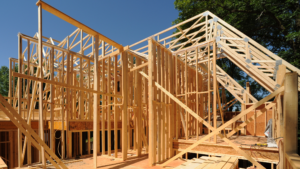Life has a funny habit of speeding up once you get through your forties and fifties, and before you know it, 65 and retirement can be staring you in the face – with all the exciting possibilities it represents, once you’re freed from the shackles of work. However, if you haven’t done some pretty thorough planning beforehand, those golden years might not be all beer and skittles.
The retired people who experience difficulties are generally those who haven’t had the means to save a retirement nest-egg therefore needing to live on the state-funded pension. With variations according to your tax bracket, at $916.36 per fortnight (gross) for a single person without a dependent child, and $763.64 per fortnight (gross), for each person in a two-person household (depending on certain circumstances) you can easily do the sums and see that this actually equates to an extremely modest annual income.
By the time you take out housing costs, food and utilities it’s very likely that you’ll be struggling to stay afloat, or even negotiating negative territory.
Some good news?
Well, if you own your home, are free from debt, and have at least some savings put away you’re more likely to be OK in retirement, so that’s positive. However, in recent years of high property prices, rising interest rates, first home buyers are purchasing later and taking out longer-term mortgages which means they could still be paying back a substantial amount of mortgage later in life.
Ideally, how much should I – or we, try to save for retirement?
The latest New Zealand Retirement Expenditure Guidelines which are released annually by Massey University, paint a less than rosy picture for many Kiwis. In October 2023, RNZ reported that based on current costs, a two-person household will need $831,000 put away for a comfortable retirement in the city and $539,000 for a comparable quality of retirement in the provinces. Meanwhile, a couple living a simpler life in the city will still need $235,000 extra, while a rural retirement will cost $120,000 – on top of super payments.
Where to start?
Signing up for KiwiSaver is a no-brainer and the sooner the better, even if it feels like a stretch at the time. The beauty of the scheme is that you are free to choose the level of your own contribution, ranging from 3% to 10% of your gross (before tax) salary, then your employer needs to contribute 3% too. You’re free to choose your own KiwiSaver provider (and to change if that provider isn’t sufficiently filling your needs). Even at the moment, while we’re experiencing a less than inspiring financial environment, the speed at which your savings may potentially build can still be quite impressive. You can choose between five basic investment types, depending on age, life-stage and your appetite for risk, which can make the whole process of saving quite satisfying.
At Properli, we’re focused on helping our clients navigate their way to financial freedom. Property Investment is another sound way to achieve wealth creation to help with retirement and potentially paying down your home loan debt quicker. Creating a 10 year plan is recommended and downloading our Design a Decade Guide is a great place to get you thinking.
A Properli Adviser can also help you find a mortgage that’s better suited to your needs, now and in the future. We can also help you reduce your costs with insurance premiums. Book with an Adviser today for a free chat.




